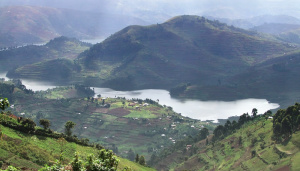The Nature Facility helps UK Foreign Commonwealth and Development Office (FCDO) staff and partners put nature at the heart of their work. It aligns with the UK’s international climate and environment commitments and aims to make FCDO’s work more effective and sustainable.
Wherever possible, work will be nature-positive – actively protecting, restoring, regenerating and sustainably managing natural assets.
The FCDO announced the Nature Facility at the UN Biodiversity Conference (COP15) in December 2022, acting on the findings of the UK government’s 2021 Integrated Review of Security, Defence, Development and Foreign Policy. The review’s top international priority was addressing climate change and biodiversity loss.
The facility was launched in June 2023 for an initial trial year under IIED’s management.
The facility offers:
- Advice on demand: delivering technical support on ‘nature-and-people’ issues to FCDO, to support design and implementation of strategy, policy and programming
- Depth of expertise: building a nature roster that draws from academic, practice and policy expertise across regions and thematic areas relevant to FCDO activities and interests, and
- Capacity and learning: building a core capacity to understand FCDO’s commitments on nature and how best to deliver them; and a focal point to share learning.
If you are part of an FCDO office and would like to make a request, please fill the application form.
Do you want to join the roster of experts?
IIED is curating a roster of experts to call upon as requests for support come in from FCDO. These experts will be people with relevant experience we can contact to carry out specific assignments. Each assignment entails around 15 days of expert time and is delivered within a 6-8 week timeframe.
If you have nature and development expertise and would be interested to join the roster, please fill the online application form.


